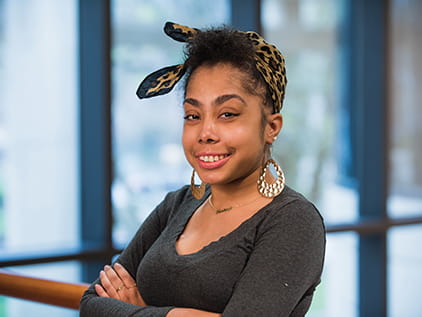Recovery
When your blood and marrow transplant (BMT) is complete, your team at The University of Kansas Cancer Center will provide you with lifelong care and support that includes annual visits and checkups.
After your final stem cell transfusion, it usually takes 2-3 weeks for your transplanted cells to engraft and produce normal blood cells. We monitor your blood count production daily for 30 days. Your BMT nurse will give you a copy of our BMT manual, tailored to your type of transplant.
Follow-up care
If your blood count remains stable at the end of the initial 30-day period following your transplant, your BMT process is complete and you transition to follow-up care. The type of follow-up care depends on whether your transplant is autologous or allogeneic.
Autologous BMT
If you had autologous or syngeneic BMT, your blood counts are stable and you need no further transfusions, your care will transition to your primary doctor or oncologist 30 days after engraftment. We recommend you see your doctor within a week of discharge from our care. Your doctor will manage your follow-up care and report your condition to your cancer center care team. After 1 year, if there are no complications, you'll begin survivorship care.
Allogeneic BMT
For 100 days after engraftment, you'll have follow-up tests at our Westwood BMT clinic at least once a week. These include lab tests, scans and, if needed, a bone marrow biopsy. We will restage your condition at 100 days, 6 months, 1 year and 2 years after transplant.
Graft-versus-host disease
Graft-versus-host disease (GVHD) is the most serious, potentially life-threatening side effect of allogeneic BMT. Antibodies from your transplant donor cells can attack your own cells. The closer your donor cells match with yours, the lower your risk for GVHD. There are 2 types of GVHD, acute and chronic.
Acute GVHD usually occurs within the first 100 days after transplant and can affect the skin, liver or gastrointestinal tract. Symptoms include:
- Constant nausea
- Skin rash
- Diarrhea
- Jaundice
Chronic GVHD usually occurs 3-6 months after transplant and can affect the skin, nails, eyes, mouth, joints, lungs, digestive system, genitals or lungs. You are more likely to have chronic GVHD if you had acute GVHD. Symptoms include:
- Unusual hair loss
- Joint pain or stiffness
- Dry eyes
- Chronic cough
- Mouth sores
Preventive measures include taking your medications and avoiding sun exposure. You can learn more about GVHD in the allogeneic BMT manual provided by your care team.
Scheduled visits
You'll have scheduled blood tests at 100 days, 180 days (6 months) and 1 year after engraftment. Although your oncologist can conduct these tests, we'll go over the results with you during your visit to our cancer center. We will call you to schedule your appointments.
At 180 days you can begin immunization for conditions such as measles, polio and mumps. Your doctor can provide these and notify us to ensure you are properly immunized.
Precautions after BMT
These precautions apply to all patients after a blood and marrow transplant. If you have any questions, refer to your transplant manual or ask your BMT nurse.
Start your path today.
Your journey to health starts here. Call 913-588-1227 or request an appointment at The University of Kansas Cancer Center.

